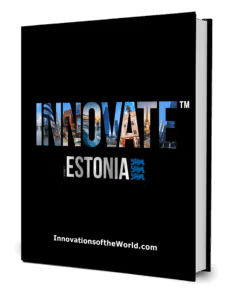In October 2021, AIRE began operations as one of Estonia’s leading AI and robotics innovation centres. The centre was established with the aim of supporting local industrial companies in adopting artificial intelligence and robotics solutions. Today, AIRE plays a central role in accelerating digital transformation, serving as a trustworthy bridge between research institutions, companies, and international partners. The centre supports small and medium-sized enterprises (SMEs) in implementing new technologies, helping them maintain competitiveness both in the domestic market and on the European stage.

FROM AWARENESS TO ACTION
At the heart of AIRE’s activities is practical support for companies that want to realistically implement AI and robotics capabilities. While initially focused on raising awareness, the focus is now clearly on action. The number of companies that have joined the network has grown from the originally planned 150 to more than 270, showing that AIRE has managed to breakdown trust barriers and provide substantial value. These companies are not merely interested parties – they are active participants whose combined turnover already accounts for 15% of Estonia’s total SME turnover.
About half of these companies use four or more AIRE services, indicating a systematic approach. The services include digital maturity assessment, business model development, AI pilot preparation, funding consultation, and robotics project testing. AIRE doesn’t just offer consultation – it’s an ecosystem where a company can move from idea to prototype, involving scientists, engineers, and funders.
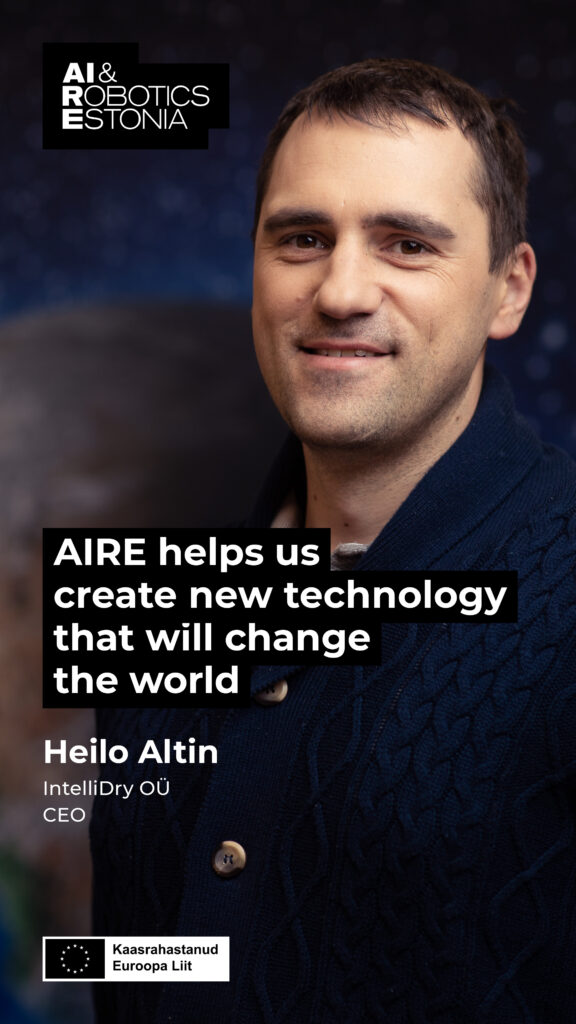
Importantly, AIRE doesn’t just act as a technology introducer, but helps companies make substantial and strategic decisions. Digital capability assessment provides a clear picture of whether and to what extent AI or robotics implementation is practical. Support is also provided for adapting business models so that new technologies create real business value.
DEMO PROJECTS: THE MEETING POINT OF SCIENCE AND INDUSTRY
AIRE demo projects operate on the principle of “test before invest” – before major investments, a company can test novel solutions in collaboration with scientists. These don’t duplicate existing technologies but focus on tailor-made solutions that meet specific company needs and contain a deliberately chosen element of uncertainty. This approach has helped break down fear of the unknown and build trust in science.
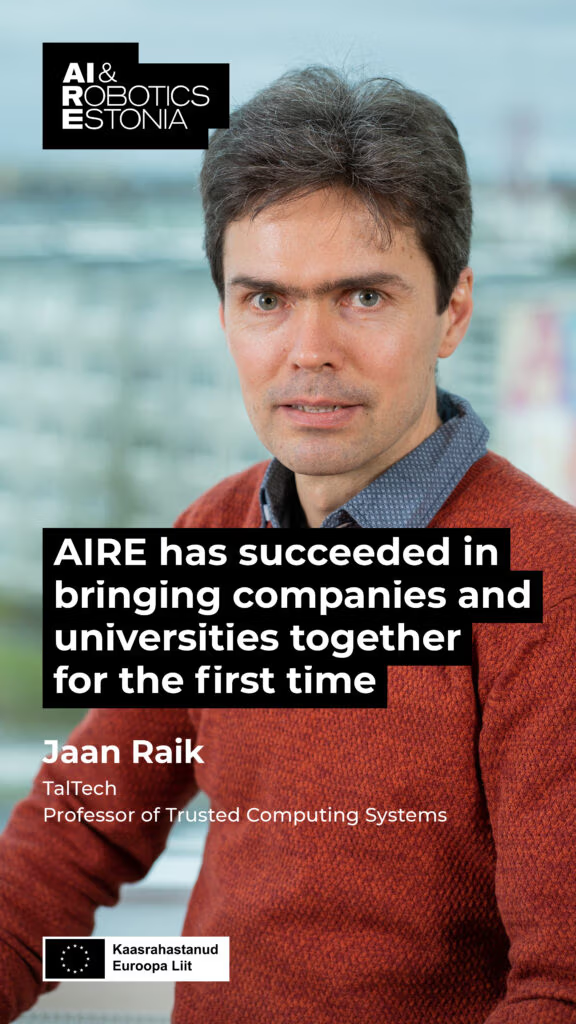
Projects typically last 6–9 months, during which prototypes, methodologies, or technologies that don’t yet exist in the market are developed. AIRE doesn’t provide financial support but offers substantive cooperation with research institutions, digital maturity assessment, and strategic consultation. The maximum support for one project is up to 60,000 euros, part of which also covers knowledge transfer activities.
The impact of demo projects extends beyond technological testing – their economic and organizational results are important. AIRE evaluates project success more broadly: whether the company has invested in an AI solution, whether productivity has increased, whether costs have been reduced. There are companies where AI implementation has brought about 5–20% cost savings – this is a concrete and measurable result.
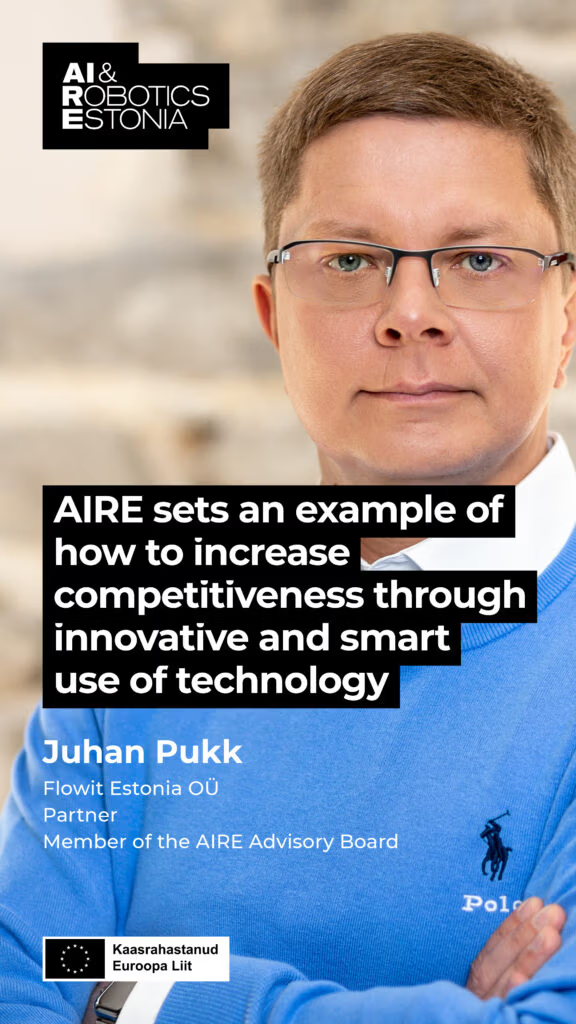
In addition to technical content, role clarity is a prerequisite for success. AIRE emphasizes that it’s recommended for companies to have their own IT integrator or development engineer in projects, who takes the solution tested by scientists to the implementation phase. Universities don’t offer “turnkey” solutions – their role is to test, think outside the box, and create innovation. The company’s own competence, especially the presence of an AI engineer, often proves decisive. This new profile, which combines AI and IT skills, is still emerging in Estonia, especially in the industrial sector.
Internationally, AIRE demo projects are part of the broader EDIH network, where knowledge transfer is also supported across borders. For example, cooperation has been carried out with Finnish, German, and Irish centres to find testers, experts, and partners. One project, 5.0 Robotics, gained valuable contact through the Irish centre – this shows that international cooperation is not just a declaration but a practical tool for accelerating innovation.
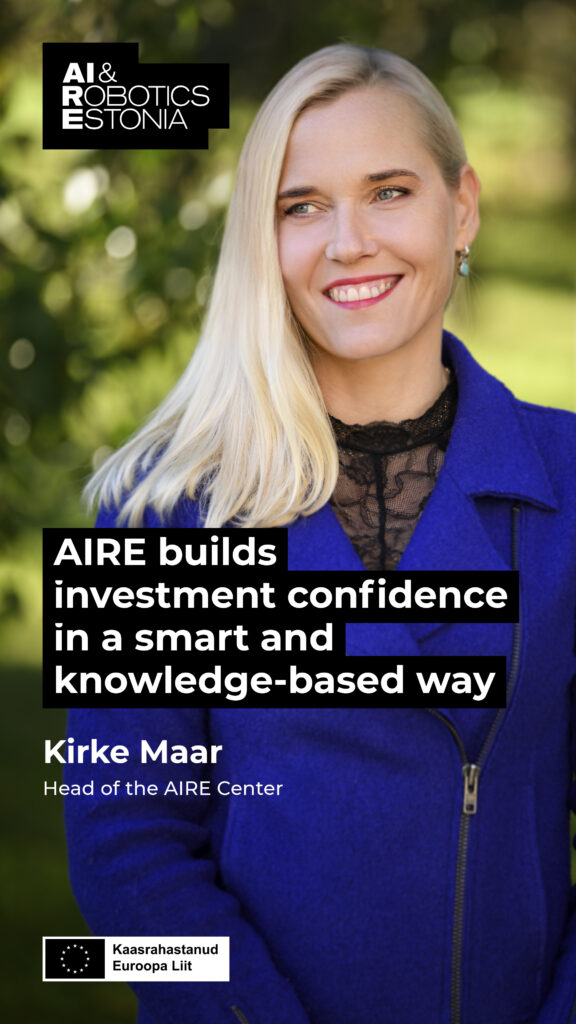
SERVICE ECOSYSTEM AND NEW DIRECTIONS
AIRE’s service portfolio is a strategically built ecosystem where each service supports another. The centre’s approach is based on the principle that technological innovation cannot function without people’s readiness – therefore, targeted training is a prerequisite for AI pilots and robotics projects. General training has been abandoned, focusing on unique and demand-based topics that meet the needs of specific sectors.
The training focus is on practical application: how to assess AI practicality, integrate robotics with existing workflows, raise digital maturity levels. Training takes place in cooperation with universities and international partners to ensure content quality and relevance. For example, Finnish and German EDIH centres have shared methodologies that AIRE has adapted to the Estonian context.
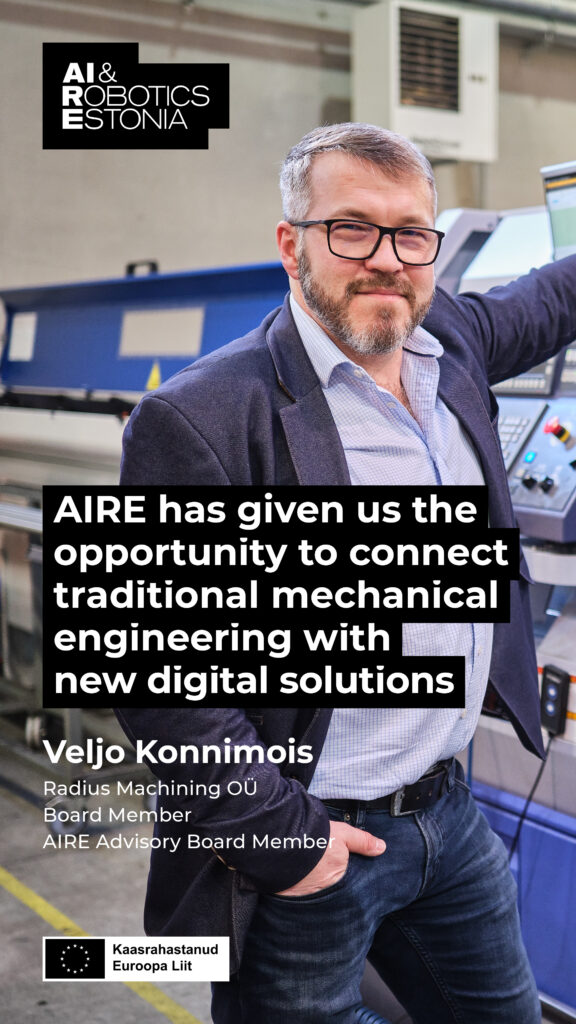
An important part of the service portfolio is also regulatory consultation. The European Union’s AI regulation sets new requirements for companies regarding risk assessment, transparency, and compliance assessment. AIRE doesn’t provide legal expertise but helps companies understand what’s expected of them and how to prepare for the compliance assessment process. As a new service, preliminary consultation is being launched, focusing specifically on obligations arising from the regulation – this is particularly important for industrial companies whose AI solutions may fall under higher risk categories.
Looking to the future, AIRE plans to launch smaller and more flexible project rounds, where new companies are involved in testing successful prototypes. This allows better implementation and expansion of impact in sectors where AI and robotics potential is still being discovered – for example, in agro robotics, forestry, mobility, and logistics sectors. More attention will also be paid to shaping ideas in early phases so that projects are substantively mature and strategically justified.
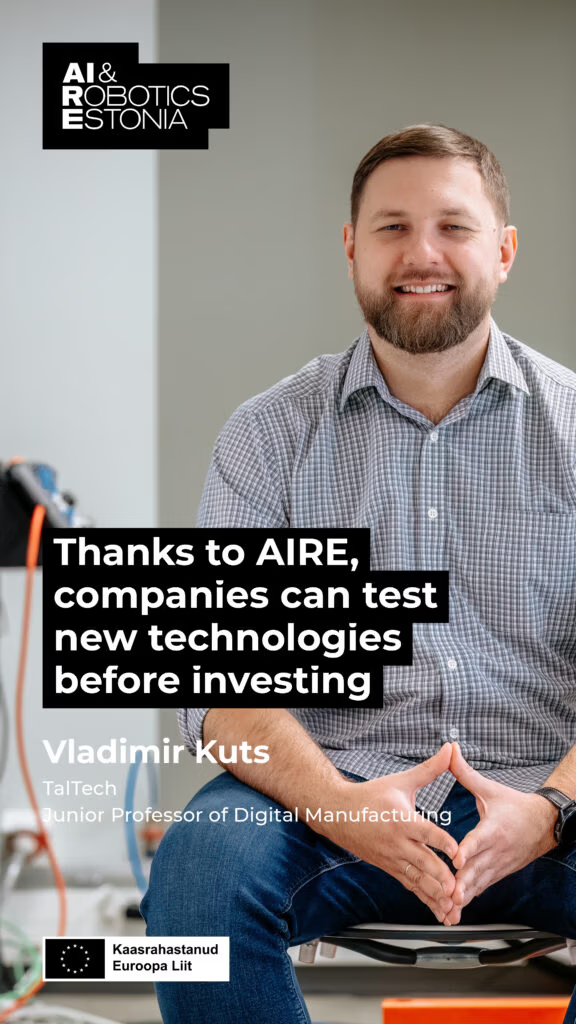
AIRE is like a development partner that helps a company move from idea to implementation. This comprehensiveness – from digital maturity assessment to finding funding – has made AIRE a trustworthy guide in Estonian industry’s digital transformation.
